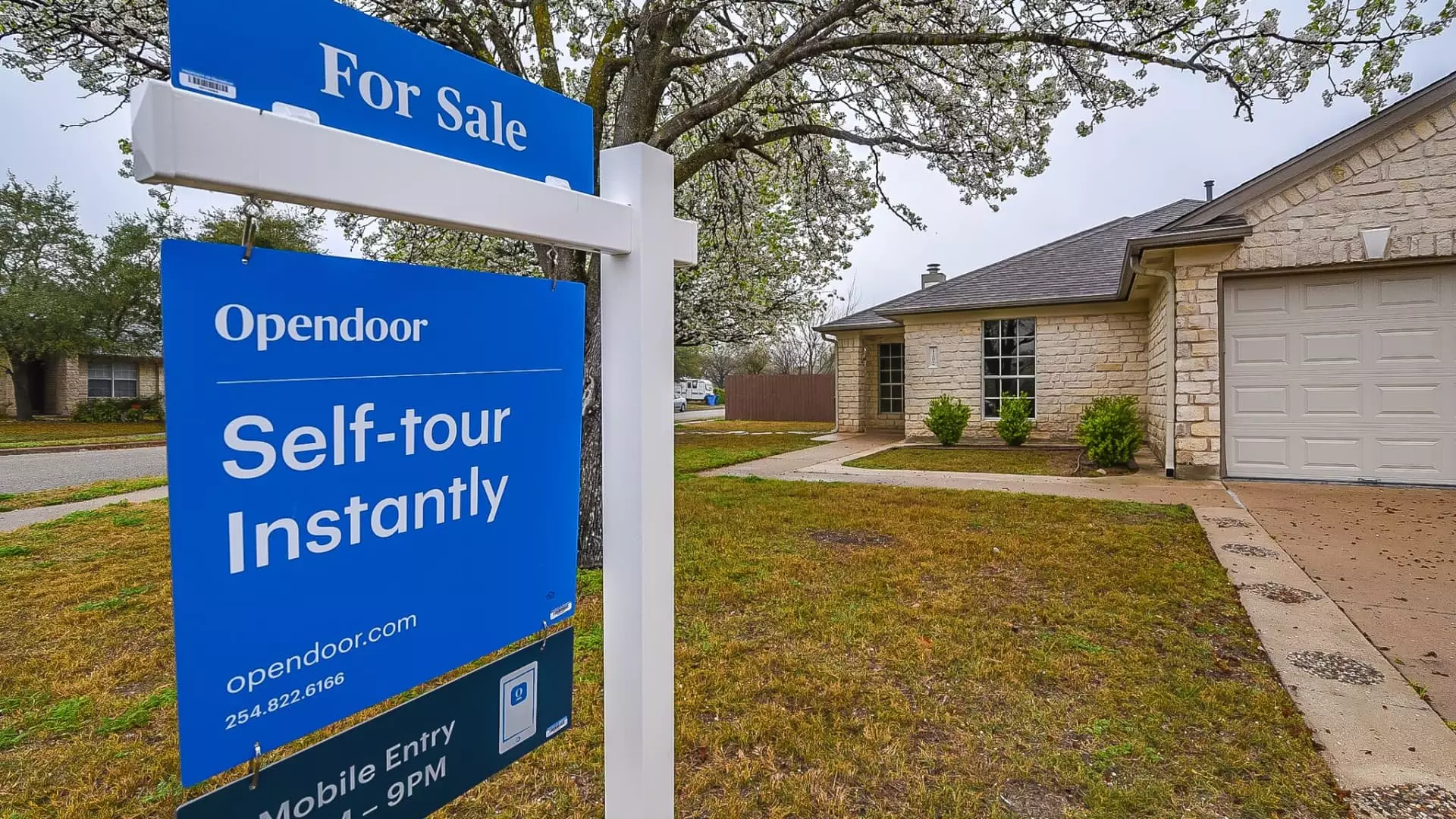In recent weeks, Opendoor’s stock has experienced an extraordinary resurgence, skyrocketing nearly fivefold since July. This resurgence has created an atmosphere of optimism among investors, who seem eager to believe in the company’s potential to rebound from its direst days. However, behind this shiny veneer lies a fragile foundation rooted more in speculative optimism than actual business strength. The reality is that Opendoor remains mired in fundamental challenges that are unlikely to be soothed by fleeting market rallies or celebrity hedge fund endorsements. The recent surge, fueled partly by high trading volumes and strategic statements from leadership, is a mirage that distracts from the hard truths of declining profitability and a battered housing market.
The Illusion of a Revival Fueled by Speculation
The company’s CEO, Carrie Wheeler, expressed gratitude for investor enthusiasm, even as the stock plummeted more than 20% after hours. It’s a classic case of a company riding a rollercoaster of emotional speculations. What’s particularly revealing is the timing—after having been nearly abandoned in 2022, with the stock sinking as low as $0.51, Opendoor managed a dramatic, temporary bounce. Much of this optimism was ignited by hedge fund manager Eric Jackson, whose bullish stance and projection of $82 per share emboldened the push. But the fact remains that Jackson’s optimistic outlook still involves a significant leap of faith; financial fundamentals tell otherwise. The company’s revenue has shriveled from $15.6 billion in 2022 to just over $5 billion last year—a decline that questions whether the current optimism is justified or merely a speculative binge.
The Stark Reality of Financial Struggles
Despite some improvement in quarterly figures—narrowing losses and slight revenue increases—Opendoor’s core issues persist. The company’s forecast for the upcoming quarter suggests a further decline in revenue, down at least 36% from previous levels, with expected home acquisitions sharply decreasing from prior quarters. This signals a troubling trend: the housing market remains under duress due to persistent high mortgage rates, which continue to suppress buyer demand. The company’s pivot to less capital-intensive referral models is a strategic acknowledgment of these realities, yet it raises questions about whether this shift will produce enough growth to reverse the decline or merely serve as a survival tactic.
The False Promise of Market Sentiments
Investors seem captivated more by narratives than by business fundamentals. Wheeler’s comments about broader acceptance and increased visibility hint at a desire to showcase a “story of revival.” However, this narrative is built on shifting sands. Markets often reward hope, especially when driven by Wall Street hedgies and speculative traders, but hope isn’t a substitute for strong earnings or sustainable business models. If anything, Opendoor’s recent history—marked by near-bankruptcy, shrinking revenues, and strategy pivots—serves as a cautionary tale about the risks of overhyping turnaround stories while ignoring the structural hurdles.
Why We Should Be Skeptical of the Buzz
From a center-right liberal perspective, the hype surrounding Opendoor exemplifies the dangers of complacency in speculative markets that overlook underlying vulnerabilities. The company’s reliance on continued market growth, yet its decreasing operations and shrinking revenue streams, points to an uncertain future. The investment community seems to be seduced by speculative potential rather than tangible results, a risky game that can lead to significant losses once optimism wanes. It is essential to critically evaluate whether the current rally is justified by operational improvements or merely driven by market sentiment, which can be ephemeral and deceptive.
The True Test Will Be in Business Fundamentals, Not Headlines
Ultimately, Opendoor’s prospects hinge on more than just investor sentiment and speculative bets. The company must demonstrate real operational resilience, a path to profitability, and the ability to adapt to ongoing shifts in the housing market. Until then, investors should treat the recent surge as a cautionary signal—an overhyped rally masking the persistent fragility of a business that has yet to prove it can weather the storms of a challenging economic environment. In the end, the question remains: is this a genuine turnaround or just another chapter in a volatile, unpredictable saga?

